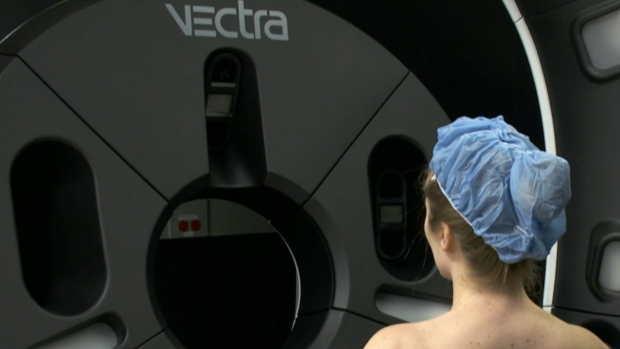Tech advances offer new tools in the fight against skin cancer
This year, it's estimated that more than 100,000 Americans will be diagnosed with melanoma, the most serious form of skin cancer. But there's encouraging news in the battle against the disease, in the form of revolutionary new ways to screen for it.
One innovation is an oddly shaped machine that has 92 cameras. Dr. Allan Halpern, chief of dermatology at Memorial Sloan Kettering Cancer Center, showed CBS News how it works: The cameras shoot simultaneously, and within minutes, a software program builds a three-dimensional image of the patient's body in precise detail.
Amy Arsuaga is among those who have had their bodies rendered in 3D. For as long as she can remember, she has had hundreds of moles over her entire body, putting her at increased risk for melanoma.
Conventional screenings took hours. "[I was] not wearing my clothes for four hours. So I just wasn't too keen on going back," Arsuaga said, calling her previous experience awkward.
Fewer skin cancer screenings during the COVID-19 pandemic may have led to delays in the diagnosis and treatment of nearly 20,000 melanomas, according to a recent study published in the Journal of the American Academy of Dermatology.
"What we're trying to do is bring some of the very smarts that are rapidly finding their way into what we do for entertainment into clinical care," Halpern said.
Some of those smarts include a special handheld microscope to probe under the skin and provide images at the cellular level. Google is also testing a home screening app that allows users to upload photos and research their own skin conditions.
"We're, bottom line, trying to leverage technology to help do a better job to catch melanoma at the earliest possible stage, while at the same time avoiding a lot of unnecessary biopsies," Halpern said.





